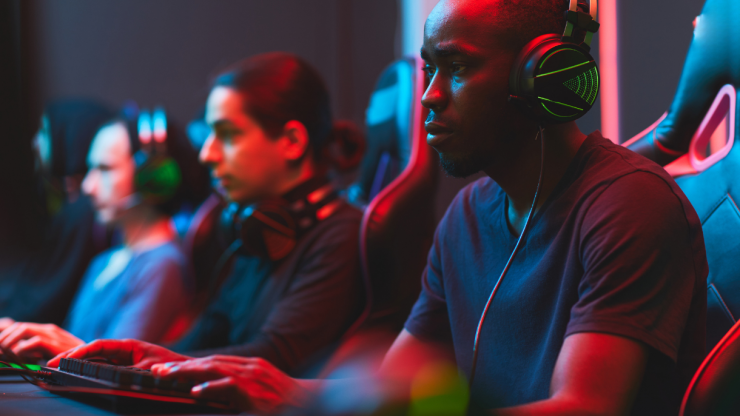How To Become a Shoutcaster

Students who want to go into shoutcasting and are familiar with esports more than likely know exactly what the job entails. They might just be unsure of how to get into the field. An esports shoutcaster plays an important role in every esports tournament, as they are responsible for discussing the gameplay and describing it for those who are not present (but still want to know what's going on). The title comes from a program called SHOUTcast that was used in the early 2000s in order to broadcast radio programming over the internet. If you’re interested in becoming a shoutcaster, you need to know as much as possible about the field, in addition to having a solid foundation in broadcasting. Want to learn more? Keep reading!
Different Types of Shoutcasting
In general, there are two different types of shoutcasters: "the talk" or play-by-play reporters, and "the brain" or color casters. The play-by-play shoutcasters handle tasks similar to those of play-by-play broadcasters announcing traditional sports on the radio. They need to be able to stay in touch with the game play and have knowledge of the game so that they can describe what's happening as it occurs.
A color caster, on the other hand, spends a lot of their time discussing not just what happened on the screen during the game, but why the esports player did what they did. These shoutcasters sometimes pop up during the live broadcast with bits of information, although they spend time after the match analyzing it in some depth as well. They need to have a lot of in-depth knowledge in order to accurately describe a player's motivations, and most likely have played the game themselves.
Both types of shoutcasters play an important role in esports matches, as they keep the audience engaged in the action and provide plenty of background information.
Becoming a Shoutcaster
In many cases, shoutcasters take a two-pronged approach to obtaining their jobs. For one, they have played esports in college, joining teams or clubs that compete against other schools. This provides them with plenty of knowledge about the games being played, because they have spent time behind the controller as well. Secondly, a shoutcaster needs to have some broadcasting experience. Some may have a degree in Esports Management, or they have spent some time obtaining a more traditional Sports Broadcasting degree. It may also be a good idea to take classes in both in order to be fully prepared for the world of shoutcasting.
Although esports are still fairly new, these professional matches have brought in some big sponsors, and professional esports players, as well as those in the shoutcasting booths, are making a good amount of money. This trend will only continue as the field grows even larger, allowing more and more people to play esports. As a result, shoutcasting is a valid career with plenty of prospects and opportunities. Interested in taking the first step? Request more information, today!
